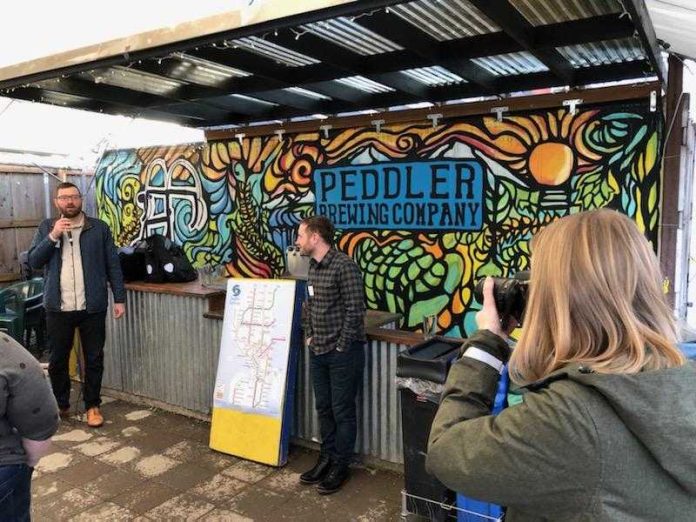
Thanks to everyone who has donated to The Urbanist during our subscriber drive this month and to those who attended our first fundraiser ever on Sunday. A special thanks to Brittney Bush Bollay and Cary Moon for headlining the event. It’s truly an honor to advocate alongside such inspiring people!
At the event, I introduced myself in my new role as Executive Director. Owen Pickford has led our organization since its inception in 2014 and built it up from nothing. He will continue serving as treasurer and boardmember. I can’t thank Owen enough for nurturing The Urbanist, bringing so many people together, and welcoming me from the start. Below are an adapted version of my prepared remarks on Sunday.
I’m excited for the collective opportunity we have in Seattle. Seattle is doing a lot of things well that other American cities are bungling. In the past decade we’ve led the nation in transit ridership growth and in decreasing car ownership rates. This did involve some good fortune and a lack of competition, but it was also built on investment in transit and planning for denser, walkable, bikeable neighborhoods.
In 2014, Seattle passed a Transportation Benefit District augmenting bus service. In 2015, we passed the Move Seattle Levy and The Seattle Times ran the headline “Urbanists appear to be big winners in Seattle election.” In 2016, we doubled the Seattle Housing Levy and passed Sound Transit 3 and its 62 miles of light rail and 54 miles of bus rapid transit. In 2017, we passed the first round of Mandatory Housing Affordability rezones. In 2018, parking reform. In 2019, accessory dwelling reform and another “city-wide” round of MHA rezones.
With some of the low-hanging fruit plucked, we’re going to have to be more intentional and strategic to keep positive trends going.
We will need to convince more people to buy into urbanism and a collective vision of a sustainable car-lite future. Our daily articles build that case, but it also takes organizing and coalition building. The Move All Seattle Sustainbaility (MASS) coalition is off to a good start on that front, but the coalition must be broader and more diverse to succeed long-term.
Making urbanism meaningful to more people requires speaking to more than the stereotypical causes. It’s not just raising height limits, but raising revenue to ensure social housing is a big part of what’s built afterward. It’s not just highlighting the racist past of land use, but creating a proactively antiracist housing future. It’s not just more transit, but more people being able to access, rely on, and afford transit.
Beyond these policy battles, the case for urbanism is also built on joy–ambling down a people-first street you can window shop, bump into a friend, stop at a park, or just take a second to enjoy your surroundings. The drive until you qualify and then drive everywhere you go lifestyle can’t offer that. People like living in well-designed cities. We just have to remind folks, and get back to designing cities that way.
We appreciate those of you who’ve joined us on the journey. If you’d like to keep the momentum going, please subscribe to support The Urbanist.
[give_form id=”85489″]
Doug Trumm is publisher of The Urbanist. An Urbanist writer since 2015, he dreams of pedestrian streets, bus lanes, and a mass-timber building spree to end our housing crisis. He graduated from the Evans School of Public Policy and Governance at the University of Washington in 2019. He lives in Seattle's Fremont neighborhood and loves to explore the city by foot and by bike.

